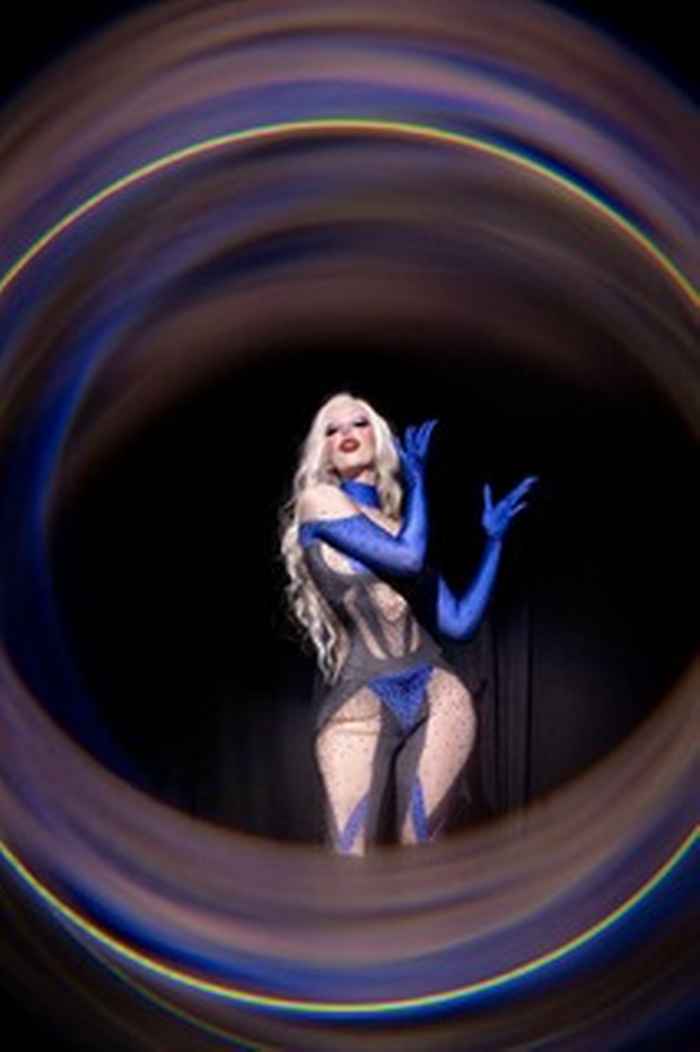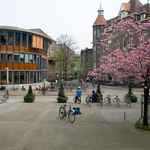Brainwave #3 Who's Afraid of Drag?
- Date
- 16 October 2025
- Time
- 16:30 -18:30
- Location
- BG 3
- Room
- VOX-POP
Entrance to this programme is free, but due to limited capacity you need to register in advance.
The programme will open with a discussion on the philosophy of drag as an art of transformation: how drag destabilizes binaries, exaggerates norms, and creates spaces of resistance and play. Through case studies from around the world, we will trace how drag adapts to specific cultural traditions, and how performers reimagine gender and sexuality within their own social landscapes.
The seminar also addresses a pressing question of our time: why has drag become a target for the rising tide of the anti-gender movement and right-wing politics? We look at how growing authoritarian regimes censor drag and gender diversity, and what cultural fears drag stirs up in societies where rigid norms help keep power in place. Is drag inherently threatening? If so, to what? We will consider how drag unsettles state projects of national morality, heteronormativity, and cultural purity.
Finally, we will reflect on the broader implications of silencing drag and queer performance for representation, visibility, and freedom of cultural expression. By situating drag in the intersection of art, politics, and censorship, this seminar aims to illuminate why drag continues to be both a creative force and a political battleground.
Programme
16:30 – 16:40 | Interactive Opening
Mentimeter Activity: “Drag is…”
Participants share initial thoughts and definitions
16:40 – 17:00 | The Politics of Drag
Discussion on how and why drag is political and subversive
Anti-Gender Movement and the rising right
Philosophical frameworks: Who’s Afraid of Gender? (Judith Butler)
17:00 – 17:20 | Drag and Power Structures
Drag and patriarchy
Censoring Huysuz: Drag on Turkish TV and Infringement of Cultural Expression (upcoming in The Routledge Companion to Drag Studies)
17:20 – 17:35 | Drag Across Contexts
Mainstream drag versus alternative and local forms
Drag and colonialism
Indigenous and local drag traditions
17:35 – 17:45 | Artivism in Practice
Presentation of Superball materials and discussion on drag as artivism
17:45 – 18:15 | Q&A with Guest Speaker: Larina Grigia
Open discussion with audience participation
18:15 – 18:30 | Closing Performance
Drag show by Larina Grigia

Serkan Kasapoğlu holds two Master’s degrees from the University of Amsterdam, one in Media Studies and the other in Arts & Culture. His work examines the intersections of culture, society, and politics, with a focus on how representation and censorship shape public sphere. Central to his research are the questions: who gets to be represented, in what ways, and under whose authority are stories told and circulated? His upcoming publication, “Censoring Huysuz: Drag on Turkish TV and Infringement of Cultural Expression” will appear in The Routledge Companion to Drag Studies. He is currently in the process of pursuing the right PhD program to further his academic trajectory.

Drag artist, community organiser, and cultural storyteller, Larina Grigia began her drag journey in Istanbul, where she discovered that performance could be protest, poetry, and a love letter to her culture. For over eight years, Larina has created spaces for queer artists, kept nightlife alive under restrictive conditions, and embodied the message that drag belongs to all bodies, genders, and expressions. Now splitting her time between Amsterdam and Istanbul, she builds bridges across communities, bringing diasporic and local queer narratives into dialogue. Her style moves fluidly between femme and genderfuck, weaving Anatolian influences, satire, and sensuality into performances that are as political as they are playful. Each show is a layered experience—visually rich, emotionally charged, and a bold refusal to be silent. Larina’s drag invites audiences to laugh, reflect, and celebrate the enduring power of queer resilience.
